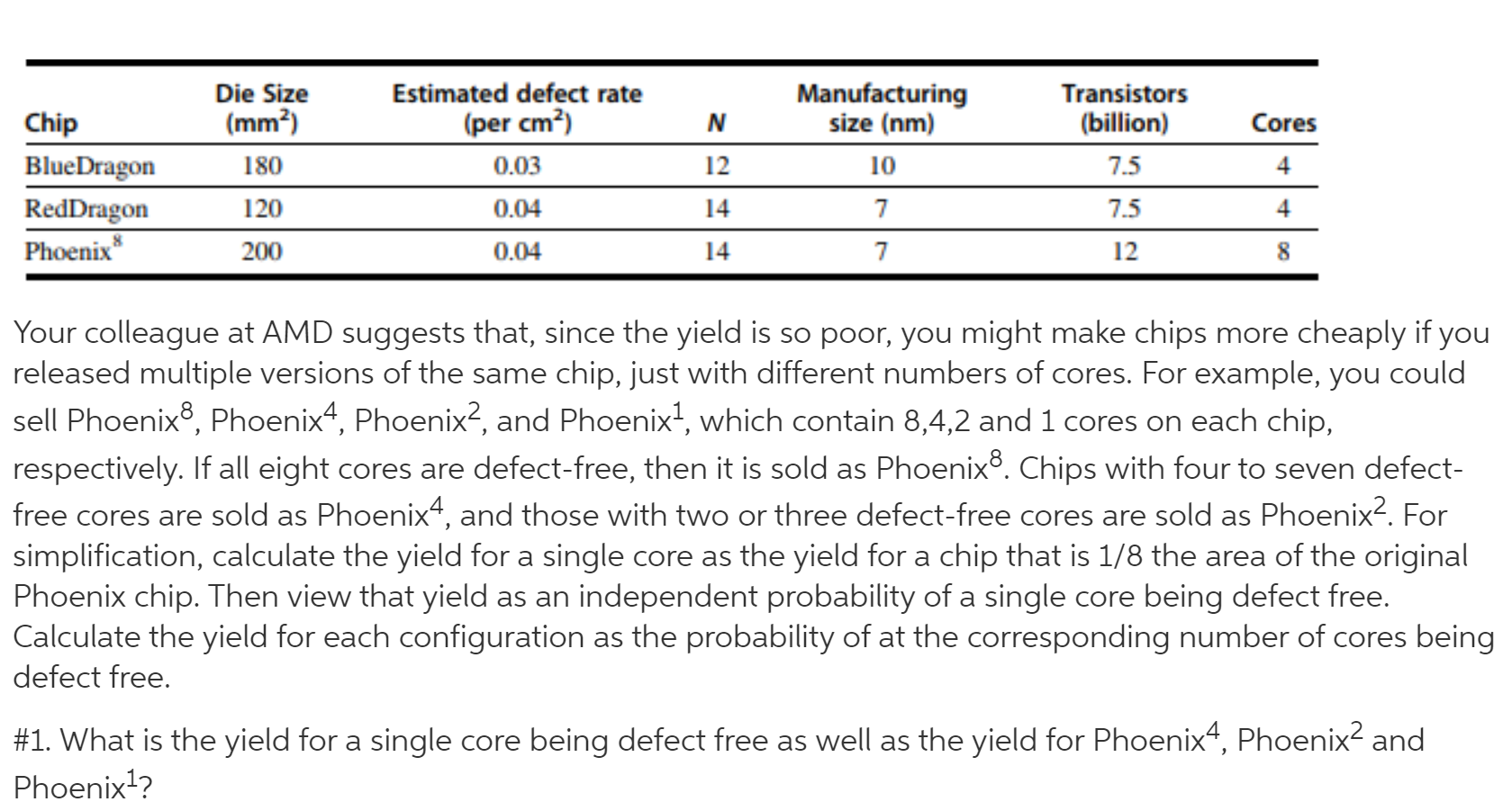Answered step by step
Verified Expert Solution
Question
1 Approved Answer
Read the question carefully! we need the yield for a single chip being defect free as well as the yield for Phoenix4, Phoenix2 and Phoenix1

Read the question carefully! we need the yield for a single chip being defect free as well as the yield for Phoenix4, Phoenix2 and Phoenix1
N Die Size (mm) 180 120 200 Estimated defect rate (per cm) 0.03 0.04 0.04 Chip Blue Dragon RedDragon Phoenix Manufacturing size (nm) 10 7 7 Transistors (billion) 7.5 7.5 Cores 4 12 14 14 12 8 Your colleague at AMD suggests that, since the yield is so poor, you might make chips more cheaply if you released multiple versions of the same chip, just with different numbers of cores. For example, you could sell Phoenix, Phoenix4, Phoenix>, and Phoenixt, which contain 8,4,2 and 1 cores on each chip, respectively. If all eight cores are defect-free, then it is sold as Phoenix. Chips with four to seven defect- free cores are sold as Phoenix4, and those with two or three defect-free cores are sold as Phoenix2. For simplification, calculate the yield for a single core as the yield for a chip that is 1/8 the area of the original Phoenix chip. Then view that yield as an independent probability of a single core being defect free. Calculate the yield for each configuration as the probability of at the corresponding number of cores being defect free. #1. What is the yield for a single core being defect free as well as the yield for Phoenix4, Phoenix2 and Phoenix1? N Die Size (mm) 180 120 200 Estimated defect rate (per cm) 0.03 0.04 0.04 Chip Blue Dragon RedDragon Phoenix Manufacturing size (nm) 10 7 7 Transistors (billion) 7.5 7.5 Cores 4 12 14 14 12 8 Your colleague at AMD suggests that, since the yield is so poor, you might make chips more cheaply if you released multiple versions of the same chip, just with different numbers of cores. For example, you could sell Phoenix, Phoenix4, Phoenix>, and Phoenixt, which contain 8,4,2 and 1 cores on each chip, respectively. If all eight cores are defect-free, then it is sold as Phoenix. Chips with four to seven defect- free cores are sold as Phoenix4, and those with two or three defect-free cores are sold as Phoenix2. For simplification, calculate the yield for a single core as the yield for a chip that is 1/8 the area of the original Phoenix chip. Then view that yield as an independent probability of a single core being defect free. Calculate the yield for each configuration as the probability of at the corresponding number of cores being defect free. #1. What is the yield for a single core being defect free as well as the yield for Phoenix4, Phoenix2 and Phoenix1Step by Step Solution
There are 3 Steps involved in it
Step: 1

Get Instant Access to Expert-Tailored Solutions
See step-by-step solutions with expert insights and AI powered tools for academic success
Step: 2

Step: 3

Ace Your Homework with AI
Get the answers you need in no time with our AI-driven, step-by-step assistance
Get Started


